
Funafuti: The Heart of Tuvalu's Island Charm
Funafuti, the capital of Tuvalu, is a hidden gem in the vast expanse of the Pacific Ocean. This tiny atoll offers a unique blend of natural beauty, cultural richness, and serene tranquility. With its clear blue waters, pristine beaches, and vibrant marine life, Funafuti is a paradise for nature lovers and adventure seekers alike. The atoll's central lagoon, Te Namo, is perfect for snorkeling and diving, offering visitors a chance to explore its colorful coral reefs and diverse aquatic species. The culture of Funafuti is deeply rooted in tradition and community. Visitors can immerse themselves in local life by attending a traditional dance performance or joining a communal fishing trip. The Funafuti Conservation Area, which spans 33 square kilometers, is a must-visit for those interested in ecology and conservation. It is home to an array of endemic species and serves as a vital sanctuary for marine and bird life. Despite its small size, Funafuti offers a range of amenities to ensure a comfortable stay. From cozy guesthouses to local eateries serving delicious Tuvaluan cuisine, visitors will find everything they need for a memorable holiday. The friendly and welcoming locals add to the charm of this unique destination, making every visitor feel at home.
Local tips in Funafuti
- Respect local customs and traditions, especially when visiting villages and attending cultural events.
- Bring cash, as there are limited ATMs and credit card facilities on the island.
- Protect yourself from the sun with high SPF sunscreen, hats, and light clothing.
- Plan your visit around the dry season (May to October) for the best weather conditions.
- Explore the Funafuti Conservation Area with a guided tour to learn about local wildlife and conservation efforts.
Funafuti: The Heart of Tuvalu's Island Charm
Funafuti, the capital of Tuvalu, is a hidden gem in the vast expanse of the Pacific Ocean. This tiny atoll offers a unique blend of natural beauty, cultural richness, and serene tranquility. With its clear blue waters, pristine beaches, and vibrant marine life, Funafuti is a paradise for nature lovers and adventure seekers alike. The atoll's central lagoon, Te Namo, is perfect for snorkeling and diving, offering visitors a chance to explore its colorful coral reefs and diverse aquatic species. The culture of Funafuti is deeply rooted in tradition and community. Visitors can immerse themselves in local life by attending a traditional dance performance or joining a communal fishing trip. The Funafuti Conservation Area, which spans 33 square kilometers, is a must-visit for those interested in ecology and conservation. It is home to an array of endemic species and serves as a vital sanctuary for marine and bird life. Despite its small size, Funafuti offers a range of amenities to ensure a comfortable stay. From cozy guesthouses to local eateries serving delicious Tuvaluan cuisine, visitors will find everything they need for a memorable holiday. The friendly and welcoming locals add to the charm of this unique destination, making every visitor feel at home.
When is the best time to go to Funafuti?
Iconic landmarks you can’t miss
Funafuti International Airport
Experience the serene beauty of Tuvalu at Funafuti International Airport, the perfect gateway to your Pacific Island adventure.
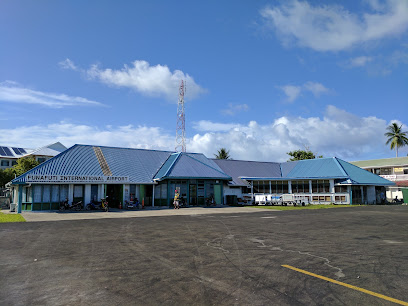
Funafuti Lagoon Hotel
Discover the serene beauty of Funafuti Lagoon Hotel in Tuvalu, where relaxation meets adventure amidst stunning natural landscapes.

Afelita’s Island Resort
Discover tranquility at Afelita's Island Resort in Tuvalu, where stunning natural beauty meets warm hospitality and unforgettable experiences.
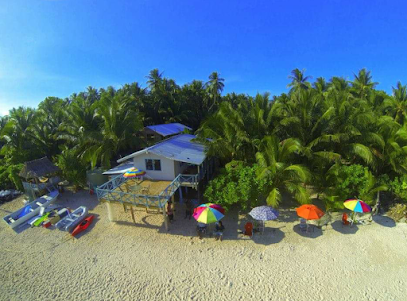
Filamona Lodge
Experience the serene beauty of Tuvalu at Filamona Lodge, your perfect getaway for relaxation and adventure in a tropical paradise.

Esfam Lodge
Experience the serene beauty of Tuvalu at Esfam Lodge, a welcoming retreat with comfortable accommodations and easy access to local attractions.

Fongafale
Discover the serene beauty of Fongafale, Tuvalu's captivating capital, where stunning beaches meet rich cultural experiences in the heart of the Pacific.
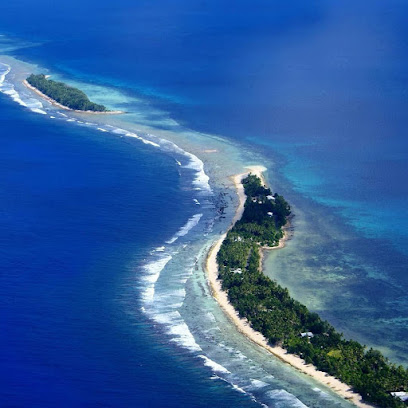
L's Lodge
Discover the tranquil beauty of Tuvalu at L's Lodge, a cozy hotel offering comfort and access to local attractions in the heart of Vaiaku.

Tuvalu Sports Ground
Experience the vibrant sports culture of Tuvalu at the Tuvalu Sports Ground, where community and athleticism come together in a stunning natural setting.
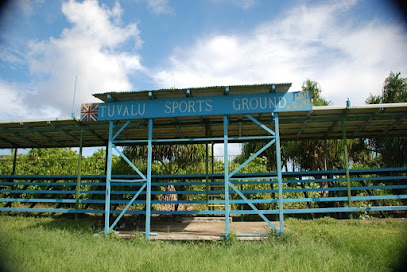
Funafala
Unwind in the serene beauty of Funafala, Tuvalu—a hidden island paradise with pristine beaches and rich cultural experiences.
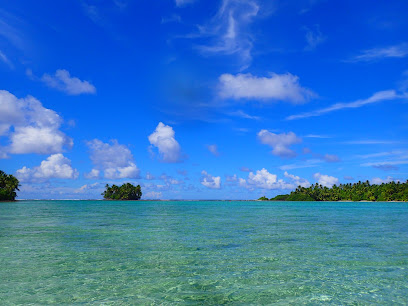
Tepuka
Explore the serene beauty and rich culture of Tepuka Island, a hidden gem in Tuvalu offering pristine beaches and engaging local experiences.
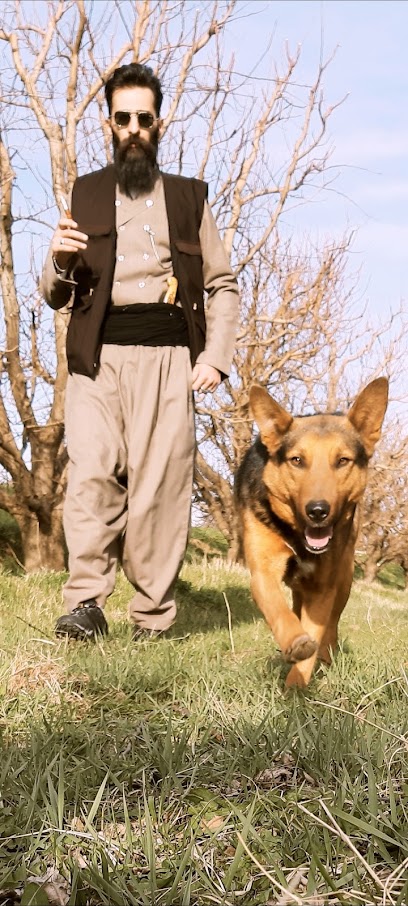
Tuvalu Women’s Handicraft Centre
Explore the vibrant culture of Tuvalu through the exquisite craftsmanship at the Women's Handicraft Centre, a must-visit for art lovers.
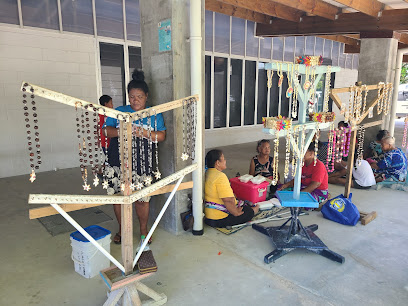
Funafuti Conservation Area
Explore the serene Funafuti Conservation Area in Tuvalu, a stunning island paradise rich in marine life and ecological beauty.

Unmissable attractions to see
Funagogoʻiliʻili Beach
Discover the untouched beauty of Funagogoʻiliʻili Beach, a serene tropical paradise in Tuvalu, perfect for relaxation and adventure.
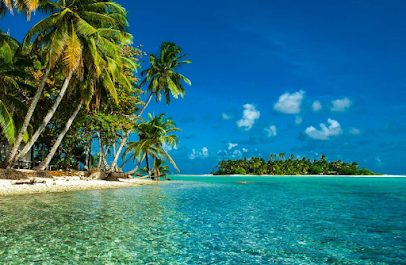
Tepuka
Explore the serene beauty of Tepuka Island in Tuvalu, where pristine beaches meet vibrant marine life in an untouched paradise.
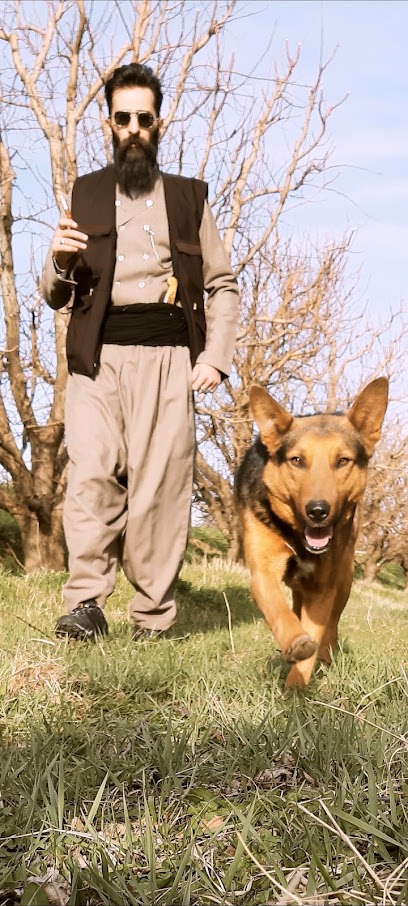
Tuvalu Women’s Handicraft Centre
Explore the Tuvalu Women’s Handicraft Centre: A vibrant showcase of local culture, craftsmanship, and empowering artisans in Vaiaku.
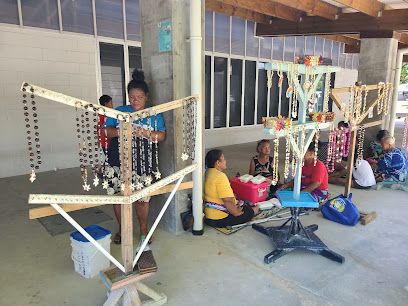
Fatato Beach
Discover tranquility at Fatato Beach, a stunning paradise in Tuvalu known for its pristine sands and crystal-clear waters.
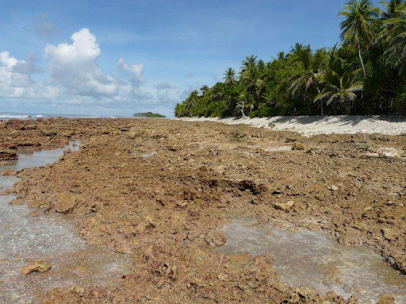
Te Vili o Tavita
Experience the tranquil beauty of Te Vili o Tavita, a hidden paradise in Tuvalu, perfect for nature lovers and cultural explorers alike.
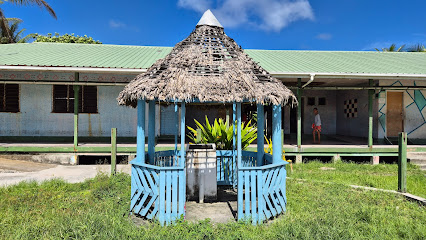
Tepuka Vili Vili
Discover the serene beauty of Tepuka Vili Vili, Tuvalu’s hidden island paradise with stunning beaches and vibrant marine life.

Essential places to dine
Funafuti Lagoon Hotel
Experience tranquility at Funafuti Lagoon Hotel - your gateway to exploring the serene beauty and culture of Tuvalu.

Blue Ocean Restaurant
Savor fresh seafood and local flavors at Blue Ocean Restaurant while enjoying stunning ocean views in beautiful Tuvalu.
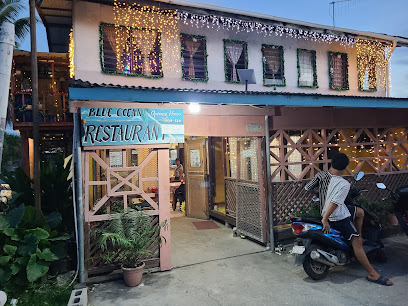
Fripay BBQ
Discover authentic barbecue delights at Fripay BBQ in Vaiaku – where flavor meets island charm!
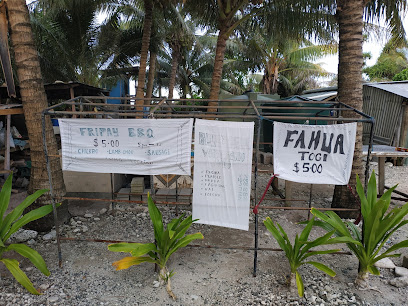
Filamona Lodge
Experience authentic Tuvaluan hospitality at Filamona Lodge – your perfect retreat in paradise.

Esfam Lodge
Experience unmatched hospitality and breathtaking views at Esfam Lodge in Fongafale, Tuvalu - your perfect getaway destination.

Chez Imogan
Discover the essence of Tuvalu at Chez Imogan – a welcoming bar offering local drinks and vibrant culture amidst stunning island views.
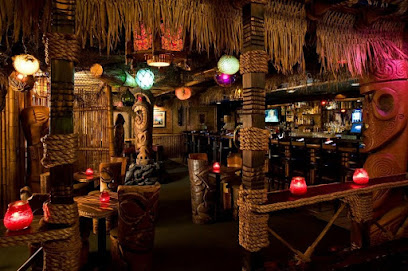
Sue's Kitchen
Discover authentic Tuvaluan flavors at Sue's Kitchen – your cozy stop for delicious meals in Vaiaku.
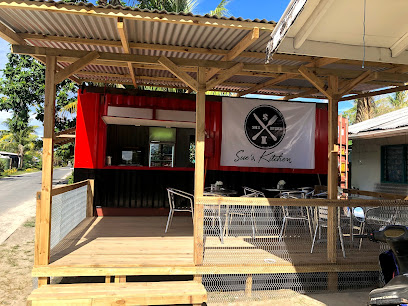
Matagigali Bar
Discover the vibrant nightlife at Matagigali Bar in Vaiaku – where fun meets friendship in paradise!
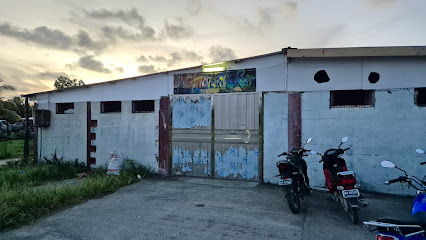
Halavai Restaurant
Experience authentic Tuvaluan cuisine at Halavai Restaurant in Vaiaku – where every dish tells a story of island culture.
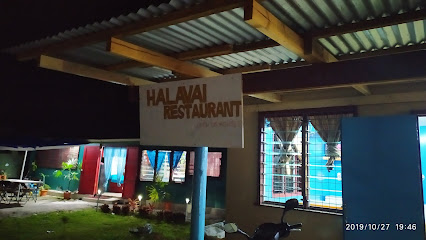
Warmasiri lodge
Experience serene island living at Warmasiri Lodge in Vaiaku, where tranquility meets authentic Tuvaluan hospitality amidst stunning natural beauty.

Nangs
Experience authentic Tuvaluan cuisine at Nangs, where local flavors meet warm hospitality amidst breathtaking views.
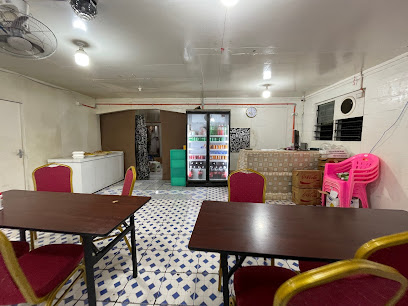
Tuvalu Women’s Handicraft Centre
Explore traditional craftsmanship at Tuvalu Women's Handicraft Centre - a vibrant showcase of unique handmade treasures reflecting local culture.
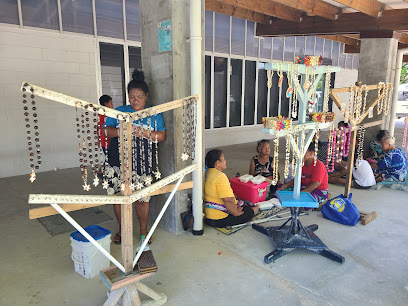
Afelita
Discover comfort at Afelita Bed & Breakfast in Vaiaku, Tuvalu - your perfect escape to tranquility and local charm.

Dillian Restaurant & Bar
Experience authentic Tuvaluan cuisine at Dillian Restaurant & Bar in Vaiaku – where every meal tells a story.
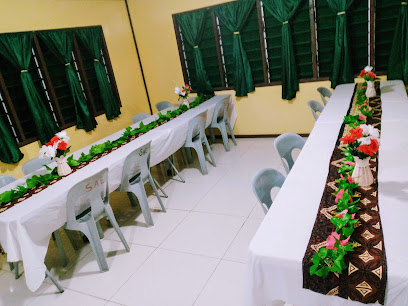
Sefatu Store
Explore Sefatu Store in Vaiaku for local essentials, unique souvenirs, and an authentic taste of Tuvaluan culture.
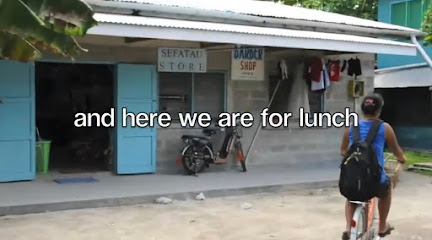
Markets, malls and hidden boutiques
Funafuti International Airport
Experience the warm welcome and serene beauty of Tuvalu at Funafuti International Airport, your gateway to the South Pacific paradise.
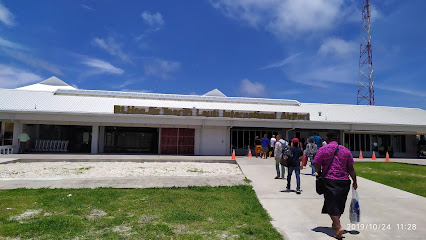
Funafuti Lagoon Hotel
Experience the serene beauty of Tuvalu at Funafuti Lagoon Hotel, where comfort meets breathtaking lagoon views.

Afelita’s Island Resort
Experience ultimate relaxation at Afelita's Island Resort, where tropical beauty meets luxurious comfort in the heart of Tuvalu.
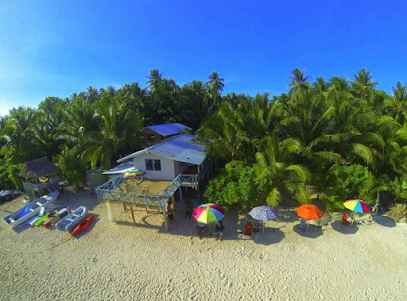
Island Supermarket
Discover the flavors of Tuvalu at Island Supermarket - your local hub for fresh produce and authentic island goods.
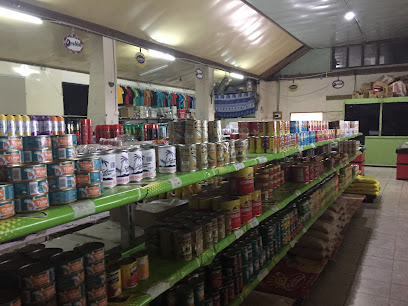
Filamona Lodge
Experience the serene charm of Filamona Lodge, a cozy retreat in Tuvalu, where local hospitality meets stunning natural beauty.

Jimmy Store
Discover local flavors and essentials at Jimmy Store, the largest supermarket in Vaiaku, Tuvalu, catering to all your shopping needs.
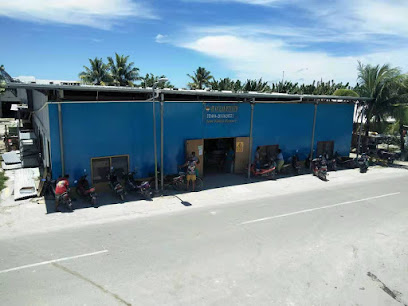
L's Lodge
Discover the charm of L's Lodge in Vaiaku, Tuvalu - a perfect blend of comfort, value, and breathtaking island beauty.

Tuvalu Telecom
Discover reliable connectivity with Tuvalu Telecom, the essential telecommunications provider for tourists exploring the stunning islands of Tuvalu.
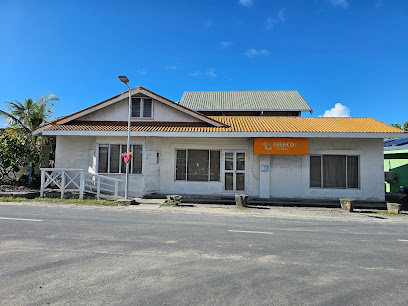
The Twins Auto Motor Repair
Experience the best motor scooter repair in Vaiaku, ensuring a smooth and adventurous exploration of Tuvalu's stunning landscapes.
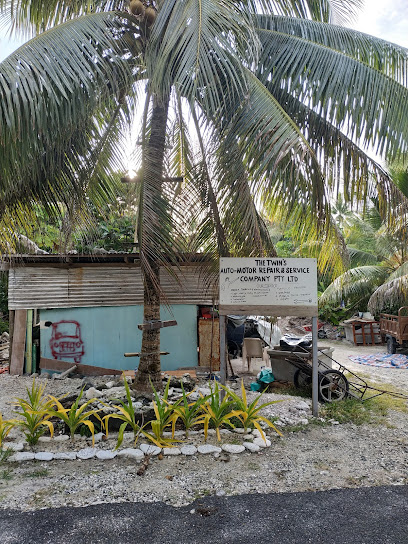
LJ Enterprise Store
Explore LJ Enterprise Store in Vaiaku, Tuvalu, for unique home goods and authentic local crafts that capture the spirit of island life.
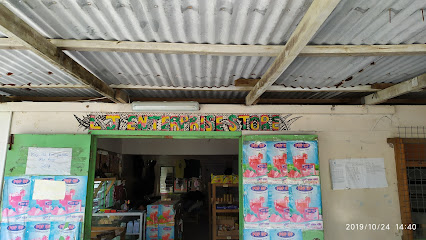
Tuvalu Women’s Handicraft Centre
Experience the rich cultural heritage of Tuvalu at the Women's Handicraft Centre, where stunning handmade crafts reflect local artistry and tradition.
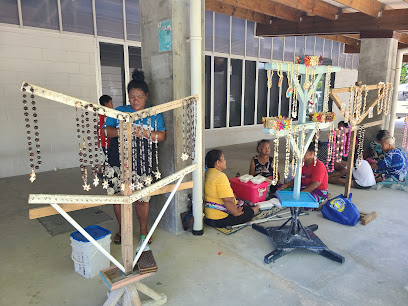
Tokotu Beach Convenience Shop
Explore Tokotu Beach Convenience Shop for local snacks and essentials while soaking in the stunning views of Vaiaku's beautiful beach.
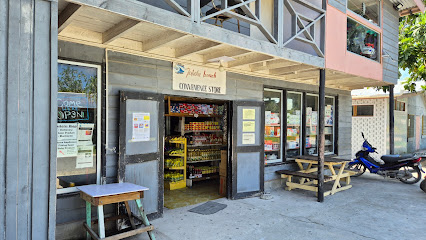
Kavatoetoe Mini Mart
Explore authentic local products at Kavatoetoe Mini Mart, a charming home goods store in Vaiaku, Tuvalu, ideal for tourists seeking everyday essentials.
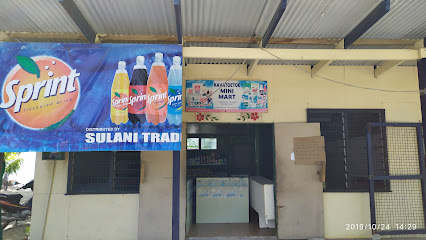
Sefatu Store
Discover Sefatu Store in Vaiaku - your essential stop for snacks, drinks, and unique local goods while exploring beautiful Tuvalu.
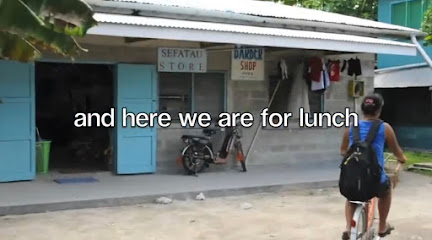
A Convenience in Funafuti
Discover local flavors and essential goods at A Convenience in Funafuti, your go-to grocery store in the heart of Tuvalu.
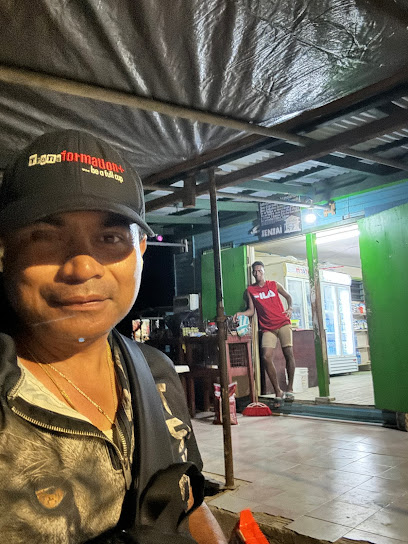
Essential bars & hidden hideouts
Tonga Bar & Cafe
Discover the vibrant charm of Tonga Bar & Cafe, where local flavors and lively atmosphere come together for an unforgettable experience in Tuvalu.

Funafuti Lagoon Hotel
Discover the serene beauty of Funafuti Lagoon Hotel, your perfect getaway in Tuvalu with breathtaking views and rich local culture.

Blue Ocean Restaurant
Discover the flavors of Tuvalu at Blue Ocean Restaurant, where fresh seafood meets breathtaking ocean views in an unforgettable dining experience.
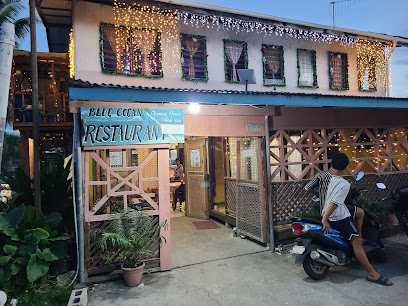
Afelita’s Island Resort
Discover paradise at Afelita's Island Resort, a serene escape in Tuvalu with stunning beaches, luxurious accommodations, and rich local culture.
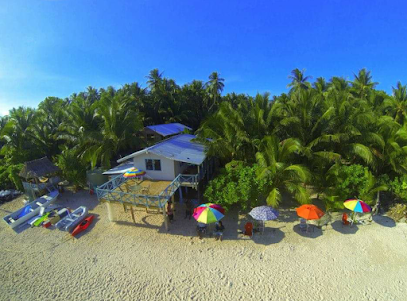
Fripay BBQ
Discover the best barbecue experience in Vaiaku, Tuvalu, at Fripay BBQ, where delicious flavors meet a welcoming atmosphere.
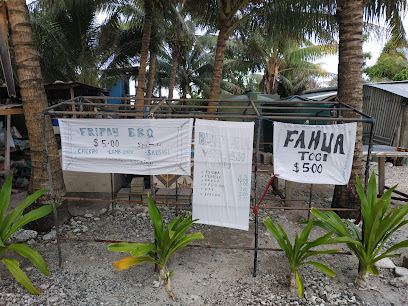
Esfam Lodge
Discover the tranquil charm of Esfam Lodge, your cozy retreat in Funafuti, Tuvalu, perfect for relaxation and exploration.

Filamona Lodge
Discover the tranquil charm of Filamona Lodge in Tuvalu, where comfort meets cultural immersion amidst stunning natural beauty.

Chez Imogan
Experience the vibrant local culture and nightlife at Chez Imogan, the heart of Amatuku's social scene in Tuvalu.
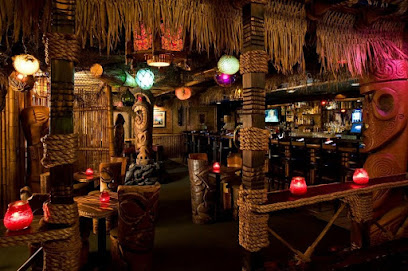
L's Lodge
Experience authentic island hospitality and serene accommodations at L's Lodge in Vaiaku, the perfect getaway for travelers in Tuvalu.

Matagigali Bar
Discover the lively Matagigali Bar in Vaiaku, Tuvalu, where unforgettable nights and new friendships await in a vibrant atmosphere.
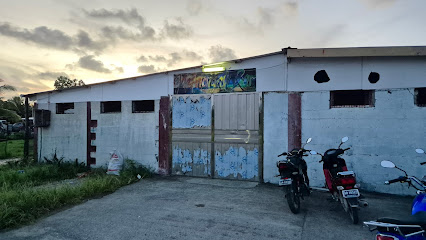
Warmasiri lodge
Experience the serene beauty of Tuvalu at Warmasiri Lodge, your ideal retreat for relaxation and cultural exploration in Vaiaku.

Tuvalu Women’s Handicraft Centre
Explore the unique artistry and cultural heritage of Tuvalu at the Women’s Handicraft Centre, a vibrant hub of traditional handicrafts.
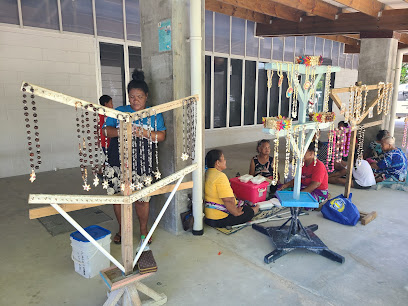
Nangs
Experience the flavors of Tuvalu at Nangs, a must-visit restaurant in Vaiaku offering a unique blend of local and contemporary cuisine.
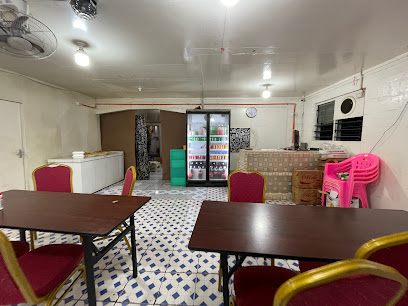
Dillian Restaurant & Bar
Discover the essence of Tuvaluan cuisine at Dillian Restaurant & Bar, where local flavors and international dishes meet in a stunning setting.
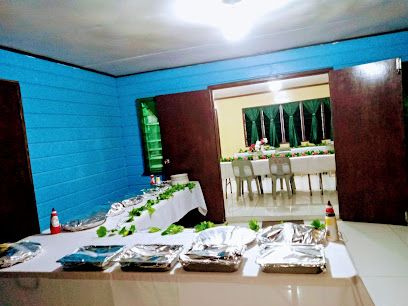
Local Phrases
-
- HelloTalofa
[ta-lo-fa] - GoodbyeFakaalofa
[fa-ka-a-lo-fa] - YesIo
[ee-o] - NoLeai
[lay-eye] - Please/You're welcomeFakafetai
[fa-ka-fe-tai] - Thank youFakafetai
[fa-ka-fe-tai] - Excuse me/SorryFakamolemole
[fa-ka-mo-le-mo-le] - How are you?Fefe haga?
[fe-fe ha-ga] - Fine. And you?Fakafofoga. Ia oe?
[fa-ka-fo-fo-ga. ee-a oy] - Do you speak English?Te gatia fakapalangi?
[te ga-tia fa-ka-pa-lan-gi] - I don't understandAe le malamalama
[aye lay ma-la-ma-la-ma]
- HelloTalofa
-
- I'd like to see the menu, pleaseTe fia fakamatahi i le suafa, fakafetai
[te fee-a fa-ka-ma-ta-he i lay su-a-fa, fa-ka-fe-tai] - I don't eat meatAe le fia fia ai laukou
[aye lay fee-a fee-a eye lau-kou] - Cheers!Malo!
[ma-lo] - I would like to pay, pleaseTe fia fai le totogi, fakafetai
[te fee-a fa-ee lay to-to-gi, fa-ka-fe-tai]
- I'd like to see the menu, pleaseTe fia fakamatahi i le suafa, fakafetai
-
- Help!Fesoasoani!
[fe-so-a-so-a-ni] - Go away!Alu i le tasi!
[a-loo ee lay ta-see] - Call the Police!Faitio le polisi!
[fa-ee-si-o lay po-lee-see] - Call a doctor!Faitio le foma'i!
[fa-ee-si-o lay fo-ma-ee] - I'm lostUa ou te le
[oo-a oy te lay] - I'm illUa ou lelei
[oo-a oy le-le-i]
- Help!Fesoasoani!
-
- I'd like to buy...Te fia fesoasoani...
[te fee-a fe-so-a-so-a-ni] - I'm just lookingUa ou vaai
[oo-a oy va-ai] - How much is it?E fia tele ai?
[ay fee-a te-le eye] - That's too expensiveUa uma le totogi
[oo-a ou-ma lay to-to-gi] - Can you lower the price?E mafai ona faatali le totogi?
[ay ma-fai on-a fa-ta-li lay to-to-gi]
- I'd like to buy...Te fia fesoasoani...
-
- What time is it?O le a le taimi?
[o lay a lay ta-i-mi] - It's one o'clockO le tasi i le taimi
[o lay ta-see i lay ta-i-mi] - Half past (10)I le a le lima
[ee lay a lay lee-ma] - MorningAoauli
[ao-a-u-lee] - AfternoonAfiafi
[a-fee-a-fee] - EveningIli
[ee-lee] - YesterdayAnanafi
[a-na-na-fee] - TodayAso nei
[a-so nay] - TomorrowAso taeao
[a-so ta-ee-ow] - 1Tasi
[ta-see] - 2Lua
[loo-a] - 3Tolu
[to-lu] - 4Fa
[fa] - 5Lima
[lee-ma] - 6Ono
[o-no] - 7Fitu
[fee-too] - 8Valu
[va-lu] - 9Iva
[ee-va] - 10Sefulu
[se-foo-loo]
- What time is it?O le a le taimi?
-
- Where's a/the...?O fea le...?
[o fe-a lay] - What's the address?O le tusi tuatusi?
[o lay too-see too-a-too-see] - Can you show me (on the map)?E mafai ona faaalia mai (i le mapa)?
[ay ma-fai on-a fa-a-a-lee-a my (ee lay ma-pa)] - When's the next (bus)?Saili i le a le faalavelave (autalavou)?
[sai-lee ee lay a lay fa-a-la-ve-la-ve (ow-ta-la-vo-oo)] - A ticket (to ....)Tiketi (i ....)
[tee-ke-tee (ee)]
- Where's a/the...?O fea le...?
History of Funafuti
-
Funafuti, like much of Tuvalu, has a deep-rooted history tied to ancient Polynesian settlers. The first inhabitants are believed to have arrived around 1000 AD, navigating the vast Pacific Ocean using sophisticated knowledge of the stars, ocean currents, and winds. These early settlers established a society based on fishing, agriculture, and communal living, laying the foundations for the culture that continues to thrive in Funafuti today.
-
The first recorded European contact with Funafuti came in the early 19th century, when British explorer Captain John Byron sighted the island in 1765. Subsequent visits by whalers and traders brought new goods and influences to the island, but also introduced diseases that had a significant impact on the local population. These early encounters set the stage for further interactions between Funafuti and the outside world.
-
In the mid-19th century, Christian missionaries arrived in Funafuti, leading to significant cultural and societal changes. The London Missionary Society established a presence on the island in 1865, and the conversion to Christianity was swift. Traditional beliefs and practices were often suppressed, but the new religion also brought education and new forms of community organization.
-
During World War II, Funafuti played a vital role as an American airbase. In 1942, the United States built an airstrip on the island as part of their efforts to counter Japanese advances in the Pacific. The presence of American troops brought significant changes, including infrastructure development and exposure to new cultural influences. The remains of bunkers and other military installations can still be seen on the island today, serving as a reminder of this tumultuous period.
-
Tuvalu gained independence from British colonial rule on October 1, 1978, and Funafuti was named the capital of the new nation. Since then, Funafuti has developed as the political and economic center of Tuvalu. The island hosts the government headquarters, the international airport, and other key institutions. Despite its small size and remote location, Funafuti remains vibrant, with a blend of traditional and modern influences shaping daily life.
-
Funafuti's cultural heritage is deeply rooted in traditional Polynesian practices. The local community maintains customs such as dancing, music, and storytelling, which are integral to social gatherings and celebrations. The 'fatele,' a traditional dance, is performed at important events and remains a symbol of Tuvaluan identity. Fishing and weaving are also significant aspects of daily life, reflecting skills passed down through generations.
-
Funafuti, like the rest of Tuvalu, faces significant environmental challenges due to climate change and rising sea levels. The atoll's low elevation makes it particularly vulnerable to flooding and erosion. Efforts to combat these issues include building seawalls and advocating for international action on climate change. The resilience of Funafuti’s community in the face of these challenges is a testament to their enduring spirit and adaptability.
Funafuti Essentials
-
Funafuti, the capital of Tuvalu, is primarily accessible by air. The Funafuti International Airport (FUN) is the main point of entry. Fiji Airways operates flights from Suva, Fiji, to Funafuti, typically twice a week. There are no direct flights from other major international destinations, so travelers usually transit through Fiji. It's advisable to book flights well in advance due to limited availability.
-
Funafuti is a small atoll, and its main island, Fongafale, is only about 2.5 kilometers wide. Most places are within walking distance. Bicycles and scooters are popular modes of transport and can be rented locally. There are also a few taxis available, but they are not metered, so it's best to agree on the fare beforehand. Public buses are not available on the island.
-
The official currency of Tuvalu is the Australian Dollar (AUD). Credit cards are not widely accepted, so it's essential to carry sufficient cash. There is one bank on the island, the National Bank of Tuvalu, where you can exchange money and withdraw cash. However, it is advisable to bring enough cash with you to cover your expenses.
-
Funafuti is generally a very safe destination. Crime rates are low, and violent crime is rare. Petty theft can occur, so it is wise to keep an eye on your belongings and avoid leaving valuables unattended. There are no specific high-crime areas targeting tourists. It is safe to walk around the island, even at night, but standard precautions should always be taken.
-
In case of emergency, dial 911 for immediate assistance. The Princess Margaret Hospital in Funafuti can handle basic medical needs and emergencies. However, for serious medical conditions, evacuation to Fiji or Australia may be necessary, so having comprehensive travel insurance is crucial. It is also advisable to bring a basic first aid kit and any necessary medications.
-
Fashion: Do dress modestly, especially when visiting villages or religious sites. Avoid wearing revealing clothing. Religion: Do respect local customs and traditions. Always ask for permission before taking photos of people or inside churches. Public Transport: Do be patient and courteous, as transport options are limited. Greetings: Do greet locals with a friendly 'Talofa' (hello). A firm handshake is a common greeting. Eating & Drinking: Do try local dishes such as pulaka (swamp taro) and coconut crab. Don’t refuse food or drink offered by locals, as it is considered impolite.
-
To experience Funafuti like a local, visit the Funafuti Conservation Area, which offers excellent snorkeling and diving opportunities. Engage with locals at the market and try traditional foods. Attend a 'fatele,' a traditional Tuvaluan dance performance, to witness local culture firsthand. Lastly, be sure to enjoy the stunning sunsets over the lagoon, a favorite pastime for both locals and visitors.
Nearby Cities to Funafuti
-
Things To Do in Vaiaku
-
Things To Do in Fongafale
-
Things To Do in Nukufetau
-
Things To Do in Rakiraki
-
Things To Do in Levuka
-
Things To Do in Lautoka
-
Things To Do in Savusavu
-
Things To Do in Labasa
-
Things To Do in Ba
-
Things To Do in Falealupo
-
Things To Do in Nadi
-
Things To Do in Asau
-
Things To Do in Nausori
-
Things To Do in Manase
-
Things To Do in Fagamalo







